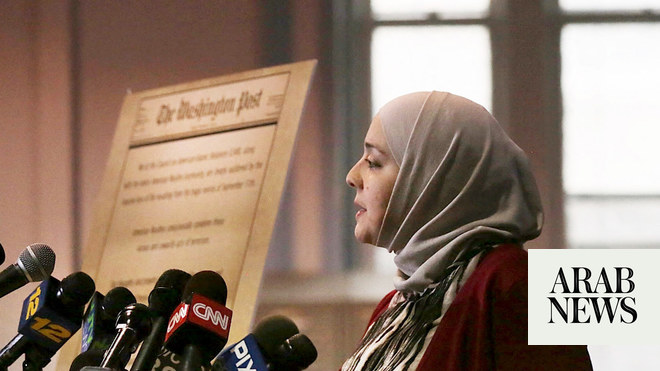
Veteran CIA officer Gina Haspel was sworn in on Monday as the intelligence agency’s first female director.
Hailing the "heroines" who had gone before her and expressing hope she and her team would be "role models," she takes over from Mike Pompeo, whom President Donald Trump recently made his secretary of state.
The 61-year-old Haspel, a Russia specialist who spent her career in the Central Intelligence Agencys clandestine service, was confirmed by the Senate last week in a 54-45 vote, despite the deep reservations of some lawmakers about her past involvement in the torture of terror suspects in the post-9/11 era.
"I stand on the shoulders of heroines who never sought public acclaim, but served as inspirations to the generations they came after them," Haspel said after being sworn in by Vice President Mike Pence and introduced by Trump.
"I would not be standing before you today if not for the remarkable courage and dedication displayed by generations" of women officers, she said at CIA headquarters in Virginia. to cheers
Haspel added: "I want the current CIA leadership team to be role models and mentors for our next generation of officers."
She joked about her bruising confirmation hearing, which dug into her work overseeing a secret "black site" prison in Thailand.
It was there that Al-Qaeda suspects Abu Zubaydah and Abd al-Rahim al-Nashiri were water-boarded, an interrogation technique subsequently condemned as torture.
"It has been nearly 50 years since an operations officer rose up through the ranks to become the director and after the experience of the last two months, I think I know why that is," she told officers and invited guests.
Trump praised Haspel at her swearing-in ceremony, saying there was "no one in this country better qualified" for the job.
He added: "The exceptional men and women of this agency deserve exceptional leadership."
Until recently, almost nothing was known about Haspel, even after she rose to the top of the CIA in 2013 and then became deputy CIA director last year.
She is the Kentucky-born daughter of a former member of the US Air Force, and was raised on military bases. The oldest of five children, she graduated from the University of Louisville, studying journalism and languages -- Spanish and French.
She joined the CIA in 1985, and quickly found a love for the cloak-and-dagger life.
"I excelled in finding and acquiring secret information that I obtained in brush passes, dead drops, or in meetings in dusty back allies of third world capitals,” Haspel said.
Learning Russian and Turkish, in the 1990s, she became a Russia specialist, working in Eastern Europe and elsewhere.
As she rose up the ranks, she said she experienced some resistance from the male-heavy ranks of the spy corps. She credited "a very tough, old school leader" for naming her station chief over male rivals in "a small but important frontier post."
The posting, believed to be Azerbaijan, resulted in an agency award for leading an operation to capture two wanted terrorists tied to the 1998 bombings of US embassies in Tanzania and Kenya.
The September 11 attacks put her into the middle of the now heavily criticized interrogation program, much of which, if launched today, would be illegal under US law.
Haspel, who later helped in the destruction of tapes of waterboarding, proudly defended her role in the program -- even if she says she would not allow it again.
"After 9/11, I didnt look to go sit on the Swiss desk. I stepped up. I was not on the sidelines. I was on the front lines in the Cold War, and I was on the front lines in the fight against Al-Qaeda," she told the Senate Intelligence Committee.
"Like all of us who were in the counter terrorism center and working at CIA and those years after 9/11, we all believed in our work," she said.












